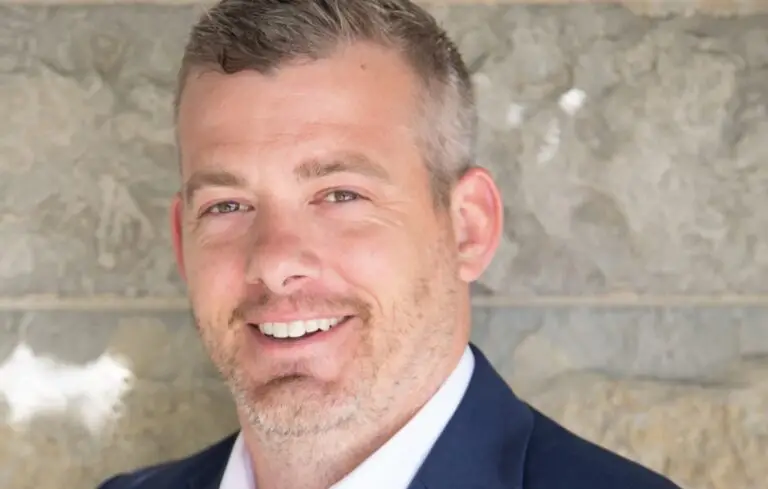Editor’s Note: Bililies will be among the speakers at our PE-backed Leadership Summit in New York this October. Join us>
Ten years ago, Ted Bililies had a hunch. The transformational leadership guru at AlixPartners suspected that private equity investors and the CEOs they back might be living in parallel universes when it came to what actually drives value creation.
So he decided to find out.
Fast forward a decade, and Bililies’ AlixPartners Tenth Annual Private Equity Leadership Survey has become the definitive snapshot of how these two critical groups—PE investors and their portfolio CEOs—align on the big questions. Or just as often, how they spectacularly don’t.
This year’s findings are particularly stark. We’re talking about a 45-point gap between how CEOs rate their leadership teams versus how their PE backers see them. There’s the “pressure cooker from hell” that’s got 58-year-old CEOs who thought they’d be cashing out by now stuck in deals that won’t exit. And then there’s the $3 trillion in dry powder sitting on the sidelines while everyone argues about tariffs and tries to implement AI.
The stakes couldn’t be higher. When the people writing the checks and the people running the companies see different realities, value creation suffers—and so do IRRs, fundraising success and ultimately the broader economy.
What follows is my conversation with Bililies (full disclosure: He’s a good friend—both of our firm and personally) about what this year’s survey tells us about the state of leadership in PE, why “marriage therapy” has become part of his job description, and his essential, go-to advice for CEOs trying to survive what he calls the “mother of all pressure cookers.” (Check out the full survey results >)
It’s been a wild few years for folks leading PE-backed organizations. What’s the big picture now as you survey the leadership?
It’s a confluence of a lot of very, very stressful factors that are culminating in the pressure cooker from hell, the mother of all pressure cookers.
We’ve got interest rates, we’ve got deals that are going too long, we’ve got people that are aging out of deals. The 58-year-old CEO had one run left in him or her, and now they’re 65 and they thought they were going to cash out and they were going to retire, and they can’t do that now. So new equity has to be issued. We have an absence of deals. We have a presence of very expensive deals. We have not $1 trillion, not $2 trillion in dry powder. We have over $3 trillion in dry powder. Oh, and then there’s this little thing called tariffs.
So we have a confluence of factors making the life of the private equity executive and the life of the private equity-backed CEO more stressful than ever.
When you talk to these folks, what are those conversations like right now and what do you tell them?
Many times, they’re about replacing someone in their management team. Someone is either underperforming, they’re breaking under the pressure, they’re not able to handle it or the strategy, the value creation plan has changed, the business strategy has changed. They’re going to need to make not two acquisitions in three years, but three acquisitions in two years. They realize that their management team is underpowered for that task. That is the most frequent thing that we see.
I often find that the most interesting part of your survey is the gap between executives and sponsors—when sponsors are from Mars and the executives are from Venus. Which areas of misalignment are creating the greatest amount of tension between PE and the portco C-Suites?
The quality of the leadership team. It’s really a very dramatic finding. The portco managers say that that’s only creating 8 percent of the tension with the board, but 52 percent of private equity investors site quality of the leadership team as the biggest tension between the two. So to my earlier point about “is this management team going to get us from where we are today to where we need to get to?” there’s a 45-point difference in perception between those two groups of people.
Has that widened recently?
It’s the widest I’ve ever seen it. There are generally differences, right? A CEO is going to say, “My folks are great,” and the PE guy or gal is going to say, “Eh, maybe not so much.” So that’s not unheard of. What is unheard of is this 45-point difference between those two groups.
Financial performance is the other big area of stress between the two groups. C-level executives are doing the best they can. They think they’re doing pretty well in delivering financial results. And for the private equity folks, it just isn’t enough. It’s not working well. It’s, “We have to get better.” So you have the application of AI largely for efficiency, some for operations, they’re pulling all kinds of AI levers that they can to try to improve financial performance.
What else do you see in there?
Communication is becoming more strained. We’re seeing more situations where boards and management teams are becoming strained in their relations. We’re doing more marriage therapy than we ever have before. “Hey, guys, remember we’re all on the same side here? We all want the same goals. If you’re sniping at each other, it’s not going to get us to where we need to get to go.”
One of the things you’ve focused on for a very long time is the role of talent and talent development in the PE environment. PE is obviously not known historically as a talent-nurturing kind of environment. Is that evolving?
Things are changing radically in the PE world when it comes to talent development. True to form, true to the creativity in private equity, they’re finding new ways to do it. They’re making a step advance in this whole area by rotating people throughout their portfolio companies, giving stretch assignments, bringing some of management committee onto the board in temporary roles. They’re figuring out that you just can’t financially engineer your way to a good outcome.
That’s point number one. Point number two is that they’re hearing from their CEOs and their CHROs that recruitment and retention are really, really hard. Quit rates are high nationally and around the globe. They’re realizing, again, that there’s no substitute for good management in running a company. So now they’re starting to invest in that. So they’re coming around, they’re coming around quickly and they’re coming around creatively.
The other huge piece is the new role of the human capital operating partner in private equity firms. The folks doing the deals in private equity firms realize that they don’t have the skill—certainly not the sustained skill and attention—to deal with talent in the portfolio. So they’re hiring an operating partner, oftentimes a CHRO, bringing in best practices where there was nothing before. That’s got to be the fastest growing job description among private equity executives in 2025.
If you’re an operating executive right now, especially a CEO, what are the biggest takeaways from the survey?
First and foremost is that we are living in a time of constant disruption. Virtually every organization is transforming itself. In the survey, 86 percent of the CEOs are saying “our operating model has to change sometime in the next one to two to three years.” Private equity is becoming more aggressive in the portfolio rationalization. They’re making material divestitures and acquisitions.
It’s about change, change, change. PE owners foresee more M&A activity: 70 percent of our sample expect to pursue transformational acquisitions, and 70 percent are going to be pursuing material acquisitions. So nothing is staying the same. It’s growing, it’s changing. PE firms are more aggressive in the deal market than ever before. My colleagues who are working in the operating model practice are working around the clock. Because what got us here isn’t going to get us there in this world of constant disruption.
Given all that, what’s the piece of advice you give CEOs more than any other?
Take care of your health, make sure that you’re exercising and you’re doing things that you enjoy on a daily basis. Physical and mental toughness is required now more than ever for CEOs.








